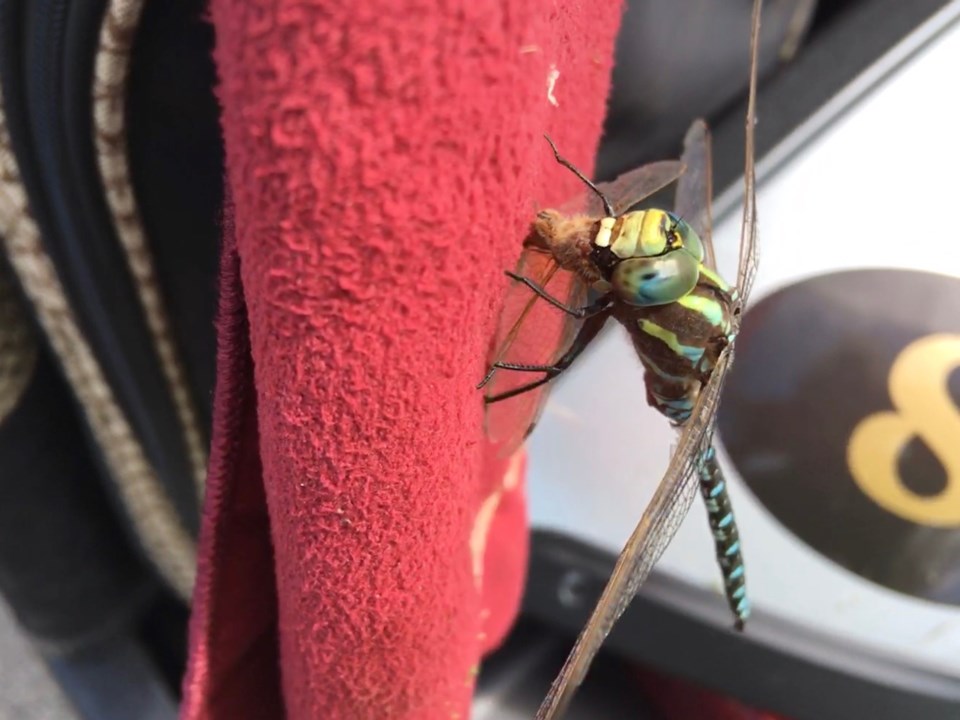Dragonflies and damselflies are fascinating insects.
That is what drew Sandy Kerr to capture the pictured one Saturday, Aug. 22, at Esterhazy Golf Course during the Big Brothers Big Sisters Golf Tournament.
Dave Halstead an instructor of Natural Resource Technology with SIAST was eager to tell the storyof dragonflies at the Yellowhead Flyway Birding Trail Association Conference held in Saltcoats back in April 2016.
“They’re extremely unique insects. There’s nothing like them in the world,” he said in a Yorkton This Week article at the time.
Halstead told those attending the main focus of his presentation was to enhance the appreciation of dragonflies. He added if he can get people to take out a net and binoculars to study the insects “I’ve accomplished something altogether more fantastic.”
In Halstead’s own case dragonflies have become a life-long curiosity. It began in his early years as an aquatic biologist.
“Bugs tell us a story about the health of lakes and streams,” he said.
Halstead explained the larva of many insects, dragonflies included, “live on the bottom of lakes and streams,” and can be impacted by dirty water, low oxygen content and similar water issues.
In 1990 Halstead began studying adult dragonflies.
In general dragonflies “are very robust,” he said, adding they are large among insects and have four wings, the front pair differing in size from the back.
In the case of dragonflies the “wings are stretched out to the side (when perched). They can’t fold them. It’s a very primitive characteristic,” said Halstead.
Dragonflies and damselflies have actually changed little since arriving on the scene some 300 million years ago “about 100 million years before even the dinosaurs showed up,” said Halstead.
“And they haven’t changed very much from that original protocol.”
There are about 70 species of dragonflies and damselflies in Saskatchewan, 40 in the Saltcoats area, said Halstead.
A local example is the boreal white face.
“Really it’s a Western Canadian species,” said Halstead. “It’s common about this time of year. It starts coming out in May and June … You won’t see it after June.”
You can find the .
You can also learn more about dragonflies at https://esask.uregina.ca/entry/dragonflies.jsp
Gordon Hutching writes on the Uof R sites, "Dragonflies are among Saskatchewan's most beautiful insects. Since they fly only during daylight times, the sun accentuates the colours of their bodies and their beautifully patterned wings when they hover or fly. Saskatchewan has a variety of aquatic environments ranging from alkaline lakes, sloughs and rivers, to acidic boreal bogs, fens and ponds. While large in extent, the range of wetlands in Saskatchewan is relatively low in diversity; therefore the species diversity of Dragonflies is also low: the province has sixty-eight species of Odonata-twenty-two species of Damselflies and forty-six species of Dragonflies-as compared to approximately 650 species for the rest of North America. However, in this large area of wetlands, Saskatchewan's low diversity is countered by the sheer volume of dragonflies on the wing.”




